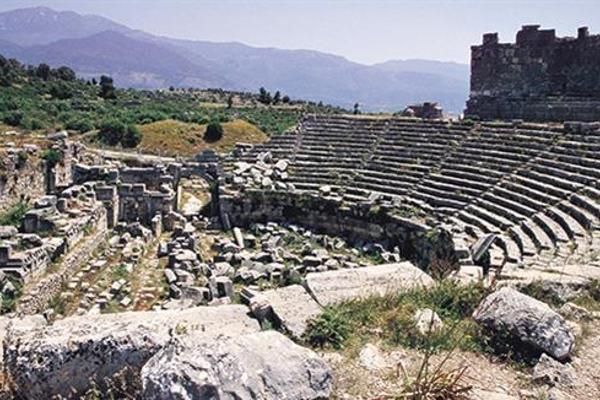New excavation season starts at ancient Xanthos
KAŞ - Doğan News Agency


The excavations works, started in 1950 by French archaeologists, have been conducted by the Culture and Tourism Ministry and Akdeniz University for the last six years. This year, eight academics, four archaeology students and nine workers will attend the excavations, chaired by Professor Burhan Varkıvanç of Akdeniz University.
The two-month excavations in Xantos, which was included in the World Heritage list in 1988, will focus on the Western Agora and Lycian structure.
“In addition to the excavations in two spots, we will continue the works on the pieces unearthed in the earlier excavations,” said Varkıvanç, adding that a lack of funds had forced the team to decrease its number of staff members.
“Xantos is a very important ancient city, which was the capital of the Lycian Union during the Archaic and classical eras. It is famous for its heroic resistance against the attacks of the Persians and the Romans, and it is one of the ancient sites in Turkey with the longest ongoing excavation works,” he added.
As the center of ancient Lycia and the site of its most extensive antiquities, Xanthos has been a center for students of Anatolian civilization since the early 19th century.
Two tombs found at the site, the Nereid Monument and the Tomb of Payava, are now exhibited in the British Museum. The Harpy Tomb is still located in the ruins of the city. A sanctuary of Leto called the Letoon is located on the outskirts of the city to the southwest.
